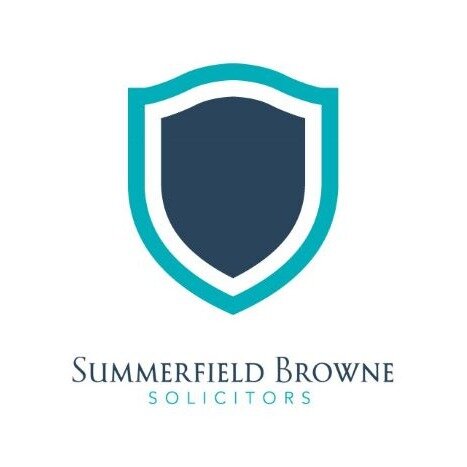Best Debt & Collection Lawyers in Leicester
Share your needs with us, get contacted by law firms.
Free. Takes 2 min.
List of the best lawyers in Leicester, United Kingdom
About Debt & Collection Law in Leicester, United Kingdom
Debt and collection law in Leicester, United Kingdom, involves the legal framework governing how debts are collected and the rights of both creditors and debtors. This area of law is designed to ensure fairness and transparency in the debt collection process while protecting consumers from abusive practices. In Leicester, as in the rest of the UK, debt collection agencies and creditors must adhere to regulations set out by bodies such as the Financial Conduct Authority (FCA). These laws cover a range of issues, including repayment plans, interest rates, and the enforcement of debts through the legal system.
Why You May Need a Lawyer
There are several situations where you might need legal assistance in matters of debt and collection:
- If you're facing aggressive debt collection practices that may infringe on your rights.
- When a creditor has issued a County Court Judgment (CCJ) against you and you're unsure of your options.
- If there is a mistake in the debt amount claimed by a creditor.
- To negotiate a debt repayment plan or seek a debt relief order.
- If you're considering bankruptcy or have been declared bankrupt, understanding your rights and obligations.
- When your income is impacted, and managing debt repayment becomes challenging.
Local Laws Overview
Debt collection in Leicester is governed by UK-wide regulations but is also influenced by local practices and enforcement policies. The key aspects include:
- The Financial Conduct Authority (FCA) regulates debt collection practices and sets rules which creditors and agencies must follow.
- The Consumer Credit Act 1974 outlines consumer rights regarding credit agreements and debt collection.
- The County Court Judgments (CCJs) process allows creditors to legally enforce unpaid debts.
- The Insolvency Act 1986 provides a framework for individuals considering bankruptcy.
- The Debt Respite Scheme (Breathing Space) offers temporary protection from debt repayment demands in certain situations.
Frequently Asked Questions
What should I do if I receive a County Court Judgment (CCJ)?
You should seek legal advice to understand your options. You can pay the debt, challenge the judgment, or negotiate with the creditor for alternate arrangements.
Can debt collectors force entry into my home?
No, debt collectors cannot force entry into your home without a court order unless they are enforcing unpaid court fines, tax debts, or are High Court Enforcement Officers.
How does a Debt Relief Order (DRO) work?
A DRO is a way to have your debts written off if you owe less than a certain amount, have little disposable income, and do not own your home.
What is the statute of limitations on debt in the UK?
For most debts, the limitation period is six years from the last payment or acknowledgment. After this, the debt may be considered statute-barred, and you can ask creditors to stop pursuing you for payment.
Can I stop a debt collector from contacting me?
You can request they communicate only in writing and cease telephone contact. If they ignore your request, you can file a complaint with the FCA.
How can I check my credit report?
You are entitled to a free statutory credit report from credit reference agencies like Experian, Equifax, and TransUnion in the UK.
What is a Breathing Space period?
A Breathing Space period temporarily halts debt repayment demands and prevents creditors from adding fees or interest for up to 60 days, giving you time to seek advice and find a solution.
What happens if I ignore a debt collection letter?
Ignoring debt collection efforts can lead to more serious actions, including court proceedings. It's advisable to engage with creditors to discuss possible payment arrangements.
Can I negotiate debt settlements myself?
Yes, you can negotiate a settlement on your own, offering a lump sum payment or a series of smaller payments that suit your financial capacity.
How do I choose a debt collection lawyer in Leicester?
Choose a lawyer with specific experience in debt and collection law, check their track record, and consider seeking recommendations or reviews from past clients.
Additional Resources
For those seeking further assistance, several resources and organizations are available:
- Citizens Advice Bureau: Offers free and impartial advice on debt-related issues.
- StepChange: A charity providing free debt advice and support across the UK.
- Leicester Law Society: Provides resources and contacts for local legal assistance.
- Money Advice Service: Offers free and unbiased financial guidance funded by the government.
Next Steps
If you need legal assistance in debt and collection, consider taking the following steps:
- Contact a local lawyer specializing in debt and collection law to discuss your situation and explore your options.
- Gather all relevant documentation, including correspondence from creditors, financial statements, and any legal notices you may have received.
- Schedule a consultation and prepare any questions you may have to maximize the value of your meeting.
- Consider seeking initial advice from free resources like Citizens Advice or StepChange to gain preliminary insights before proceeding with paid legal services.
Lawzana helps you find the best lawyers and law firms in Leicester through a curated and pre-screened list of qualified legal professionals. Our platform offers rankings and detailed profiles of attorneys and law firms, allowing you to compare based on practice areas, including Debt & Collection, experience, and client feedback.
Each profile includes a description of the firm's areas of practice, client reviews, team members and partners, year of establishment, spoken languages, office locations, contact information, social media presence, and any published articles or resources. Most firms on our platform speak English and are experienced in both local and international legal matters.
Get a quote from top-rated law firms in Leicester, United Kingdom — quickly, securely, and without unnecessary hassle.
Disclaimer:
The information provided on this page is for general informational purposes only and does not constitute legal advice. While we strive to ensure the accuracy and relevance of the content, legal information may change over time, and interpretations of the law can vary. You should always consult with a qualified legal professional for advice specific to your situation.
We disclaim all liability for actions taken or not taken based on the content of this page. If you believe any information is incorrect or outdated, please contact us, and we will review and update it where appropriate.









